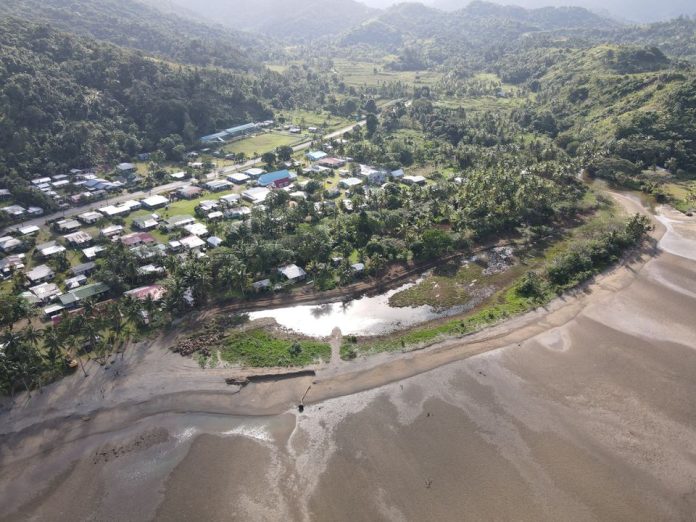The white sands of Namatakula have nurtured generations of world-class rugby talent but rising sea levels threaten to force the abandonment of the palm-fringed village on Fiji’s Coral Coast within a few years.
The village is deemed “at risk” by Fiji’s government and headman Josevata Nagausaukula contemplates a future in which children now honing their rugby skills have been shifted, with their families, to higher ground inland.
“I’m really worried. Because what’s going to happen in a few years time? For our next generation. What’s it going to be?” the 43-year-old told Reuters.
“Really worried about those who are coming up. Our grandchildren, our great-grandchildren. What are they going to face?”
The beach where Lote Tuqiri and his cousin Tevita Kuridrani first developed the skills that would take them to international rugby stardom has been eroded to the point that boulders have had to be brought from the interior to shore it up.
“Before it was pure sand, just sand, no rocks,” added Nagausaukula, holding a handful of stones. “It was a playground in here … just because of climate change and the rising of sea levels it has been washed away.”
Rugby is close to a national obsession in Fiji, with more than 80,000 registered players among a population of 900,000 – one of the highest in the world pro rata.
Just why Namatakula has produced so much talent is a mystery even to Inosi Kuridrani, an opposition member of parliament whose son Tevita was a fixture in Australia’s rugby union team from 2013 to 2019.
“Almost every year a new player comes up,” he said. “We don’t know whether it’s in the genes, it’s in our biological characteristics or it’s in the food or it’s in the water.”
Many other players have represented their country in rugby union, rugby league or rugby Sevens, in which the Fijian men’s team has won the only two Olympic gold medals.
The players have mostly had to leave Namatakula to fulfil their talent but many send money back to their families and some, like former Australia international Tuqiri, return to build homes in the village.
“Rugby has contributed so much, not only (in) relation (to) sports, but for our economic achievement villages had and our social development,” Kuridrani adds.
“They are part of our rugby.”
Village life is central to the identity of Fijians and the 600 residents of Namatakula are determined not to leave their home, where the daily kava-drinking ritual brings the community together.
“Maybe we are going to leave the church behind, our community hall behind,” Nagausaukula said. “When we move to another site, maybe we’re going to move with a new culture. We don’t want that.”
Namatakula is not alone in being threatened by rising sea levels and the London School of Economics estimates that up to 1.7 million people in the Pacific region could be displaced by 2050 because of climate change.
The villagers have pinned their hopes on plans to build a sea wall funded by the British High Commission, which would preserve the village and allow the children to continue to play rugby.
“There’s no place like home, that’s very simple,” said Nagausaukula. “Namatakula, I call it, it’s my home. There is no place like home.”…
SOURCE:REUTERS/PACNEWS














